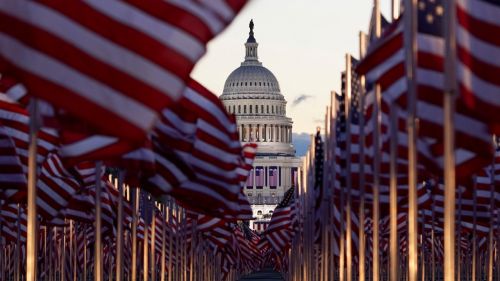Council Experts Offer President Biden Foreign Policy Advice

From the COVID-19 vaccine to US foreign policy, our experts share their recommendations for the new administration.
President Biden’s administration takes office at a critical time: COVID-19 is still gripping the world, the global economic recovery has not yet materialized, and relationships with long-time American allies are shifting.
Over the last few months, experts from across the Council have offered advice to the new administration on topics ranging from vaccine distribution to nuclear policy.
Stop vaccine nationalism
"Biden needs to make clear he opposes the vaccine nationalism practiced by his predecessor," Council President Ivo Daalder writes in the Chicago Tribune. "He has already committed to return to the World Health Organization, from which Trump withdrew, on his first day in office. He should also announce that the United States will join the COVAX initiative. Nothing will say more clearly that America is rejoining the world than committing to work with others to eradicate this disease around the globe."
End the war on terror
"Biden should announce at his inauguration that he will no longer rely on these outdated authorizations," Senior Fellow Elizabeth Shackelford writes for the American Prospect. "And that he will wind down the global War on Terror unless Congress passes new authorizations for military action for each specific country where it wishes the United States to continue its military engagements."
Remake US foreign policy
Vice President of Studies Brian Hanson and author Rebecca Lissner discuss President Biden’s unique opportunity to reimagine the United States' approach to foreign policy and focus on openness, rather than dominance, in an episode of our foreign policy podcast, Deep Dish on Global Affairs.
Build bipartisan consensus
Public opinion data from our polling experts, Senior Fellow Dina Smeltz and Nonresident Fellow Josh Busby, in Salon shows that while Republicans and Democrats are divided on many things, four key foreign policy issues could be the avenues for consensus President Biden needs for bipartisan action: China, pandemic preparedness, cyberthreats, and trade.
Take an incremental approach to denuclearization
"We need a new incremental approach that starts with freezing current capabilities, extends to closer political negotiations (including a peace treaty), adds arms control measures and builds trust over an extended period," Council President Ivo Daalder argues in the Chicago Tribune. "Only then is denuclearization a realistic possibility."
Restore America's standing abroad
Nonresident Senior Fellow Paul Heer writes "America will not be able to compete globally—especially against China’s pursuit of international legitimacy for its model of governance and development—unless we are able to make our version of democracy and capitalism successful and appealing again" for the National Interest.
Work toward global goals
Council President Ivo Daalder examines how President Biden's global goals will influence his approach to fixing the United States' broken alliances and projecting a new image to the world in conversation with the Financial Times’ Gideon Rachmann.